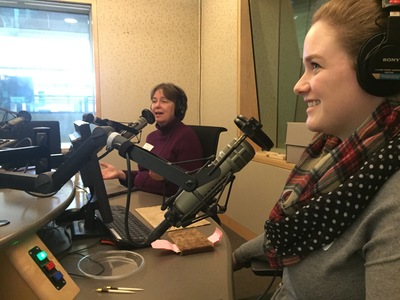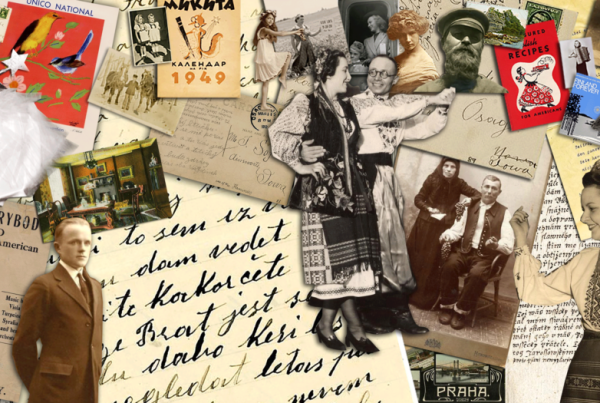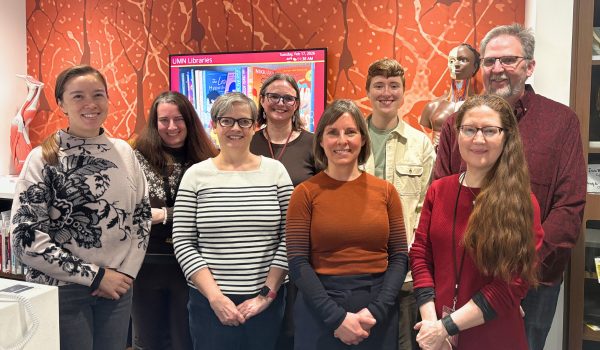
Lois Hendrickson and Emily Beck (Photo by Stephanie Curtis, MPR News)
Lois Hendrickson and Emily Beck brought treats yesterday to Tom Weber and his MPR crew and talked about the hundreds of rare recipes – from as far back as the 1500s – that can be found in our Wangensteen Historical Library.
Hendrickson, curator of the Wangensteen Library, and Beck, a Ph.D. candidate at the U, brought along two versions of “Portugal Cake” — a recipe from 1820 — to taste.
The cake called for traditional ingredients such as sugar, flour, and eggs. But it also included not-so-traditional elements, like rose water and “sack,” an old form of liquor that is similar to fortified wine.
Weber was intrigued, but don’t count him as a big fan of the Portugal Cake, which, according to the recipe, can keep for up to six months, sans the currants.
To start with, Weber found the cake a bit dry.
“So, these are OK. Do you love these?” Weber asked Beck. “Am I dissing your baking by not …”
“It’s not my new favorite go-to cake,” Beck quickly replied, assuring him that she took no offense.
Scholarly value of recipes
Hendrickson and Beck also talked about the quirks of historical recipe books, which can contain advice on just about anything – such as instructions on caring for your armor to curing your cow’s cough.
But they also pointed out that recipes have scholarly value. For example, Hendrickson said, you might be able to learn the economic standing of someone based on how often they used ingredients that were expensive (like sugar) or difficult to come by (like cocoa beans).
Want more?
- Visit the Wangensteen’s exhibit, ‘Bodies and Spirits: Health and the History of Fermentation and Distillation’
- Attend the February 13 event ‘Explore historical chocolate with GYST & Wangensteen Library’



